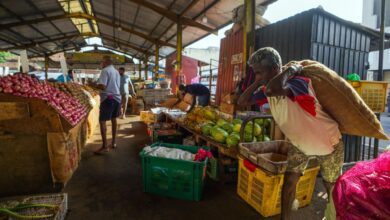CBI pays $900m to industries in subsidized foreign currency

TEHRAN – The Central Bank of Iran (CBI) supplied $921 million of subsidized foreign currency for the country’s industrial sector in the previous Iranian calendar year (ended on March 19), IRNA reported.
Based on the CBI data, some $335 million of the mentioned figure was allocated for the imports of raw chemical goods.
Various sectors of the industry including tires received $180 million, polymer materials $120 million, cellulose products $92 million, petroleum oils and oils derived from bituminous minerals $77 million, textile products $57 million and other items $47 million, the report said.
Back in April, the CBI reported that the bank also provided $4.3 billion of foreign currency to the importers of medicine and medical equipment in the previous Iranian calendar year.
As IRNA reported, the figure was 26 percent more than the preceding year, in which $3.4 billion was allocated for the imports of the mentioned products.
From the beginning of the current year (March 20) up to May 22, the central bank provided more than $3.143 billion of foreign currency for the imports of four groups of essential commodities including food and agricultural products, and medicine.
Back in March, Iran’s Expediency Discernment Council authorized the government and the state management apparatuses, including the CBI, to spend 13.6 billion euros at a preferential exchange rate for the import of basic items such as agricultural products, medicine, and its raw materials as well as medical equipment.
The council members decided on the import fund allocation while meeting under the chairmanship of Ayatollah Amoli Larijani to discuss and review the budget for the current financial year.
They stressed that the government would offer preferential rates for clearing or exchanging foreign resources resulting from the export of oil, gas, and gas condensates for the import of “only basic agricultural goods and medicine”, the list of which, will be approved by the Council of Ministers by the end of April.
As reported, the imports will be overseen by a working group consisting of the first vice president, the head of the central bank, the head of the country’s planning and budget organization, the minister of economic affairs and finance, the minister of agricultural as well as the minister of mining industry and trade.
The Minister of Health along with other relevant bodies are also required to implement and monitor the allocation, distribution, and use of currency for medicine and equipment.
In addition, the central bank is obliged to prepare monthly reports on the implementation of Clause 4(A) of the Budget Law.
EF/





